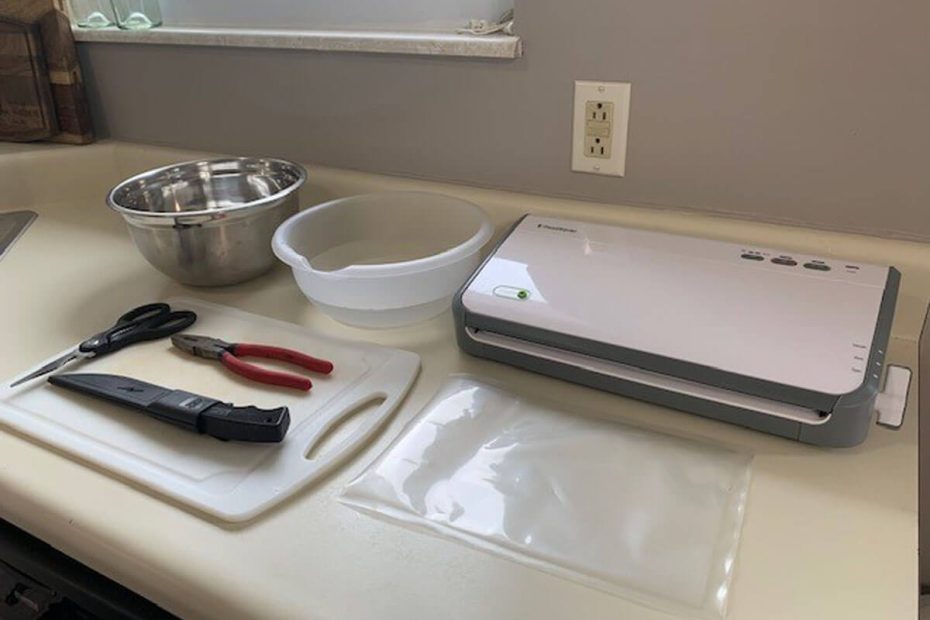I have processed many different types of game and fish from bluegill to bull elk and everything in between. I will say that cleaning frogs is by far one of the most challenging for me to this day, not because of the difficulty of preparing them for the freezer, but the fact that even after 24 hours on ice and obviously deceased they still kick and jump during the cleaning process. Therefore, I did not include a video with this post. However, if you understand the anatomy of amphibians and reptiles it makes it easier to process these abundant food resources.
The Equipment
Before you begin the process of cleaning the frogs you will need to gather a few things. I would recommend doing this outside, as it can get messy, but if you must do it inside have the following items: Cutting board, fillet knife, pliers, two bowls (one for the guts and one filled with salt water), and a vacuum sealer and bag.
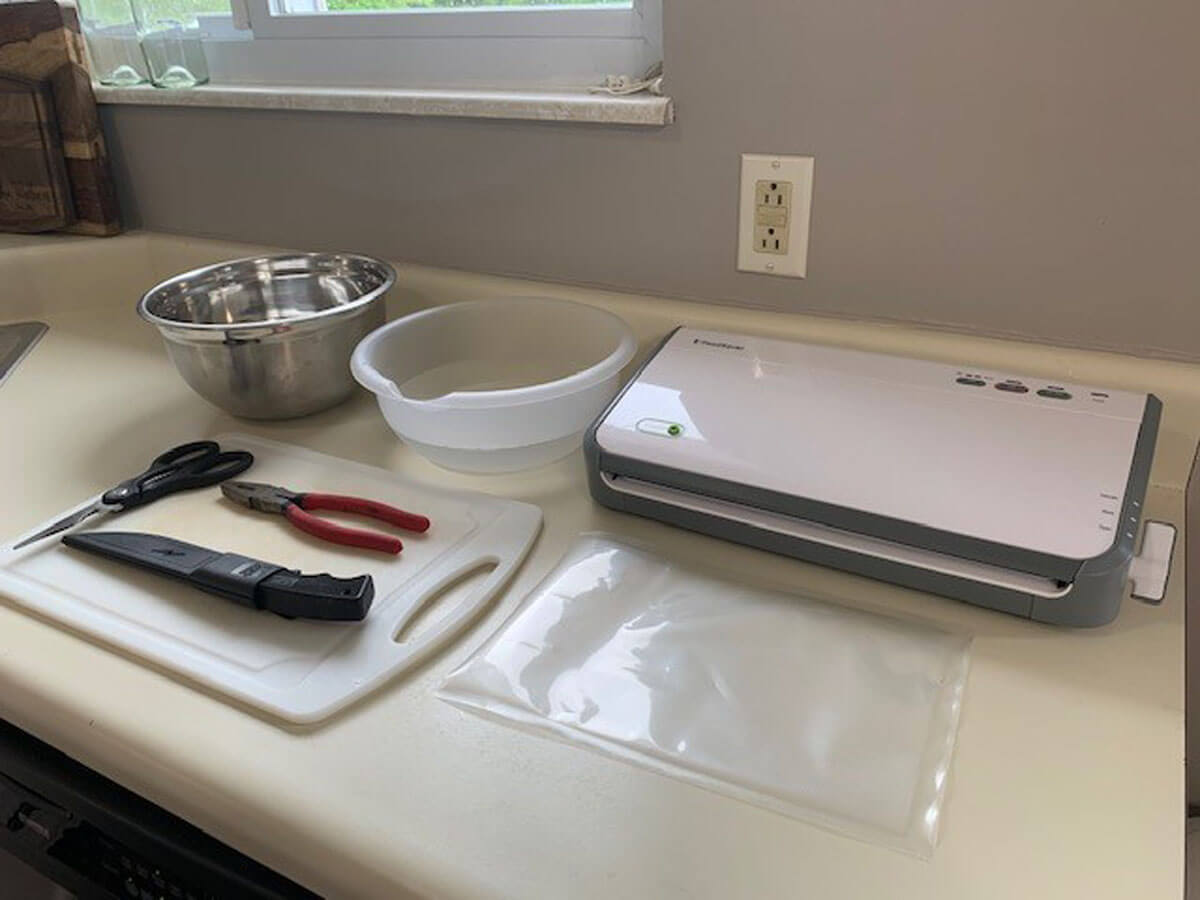
Step 1
You will want to start by clipping the back feet off with the scissors. This allows the skin to come off smoothly and it does look a little creepy when you serve the frog if the toes are still attached.
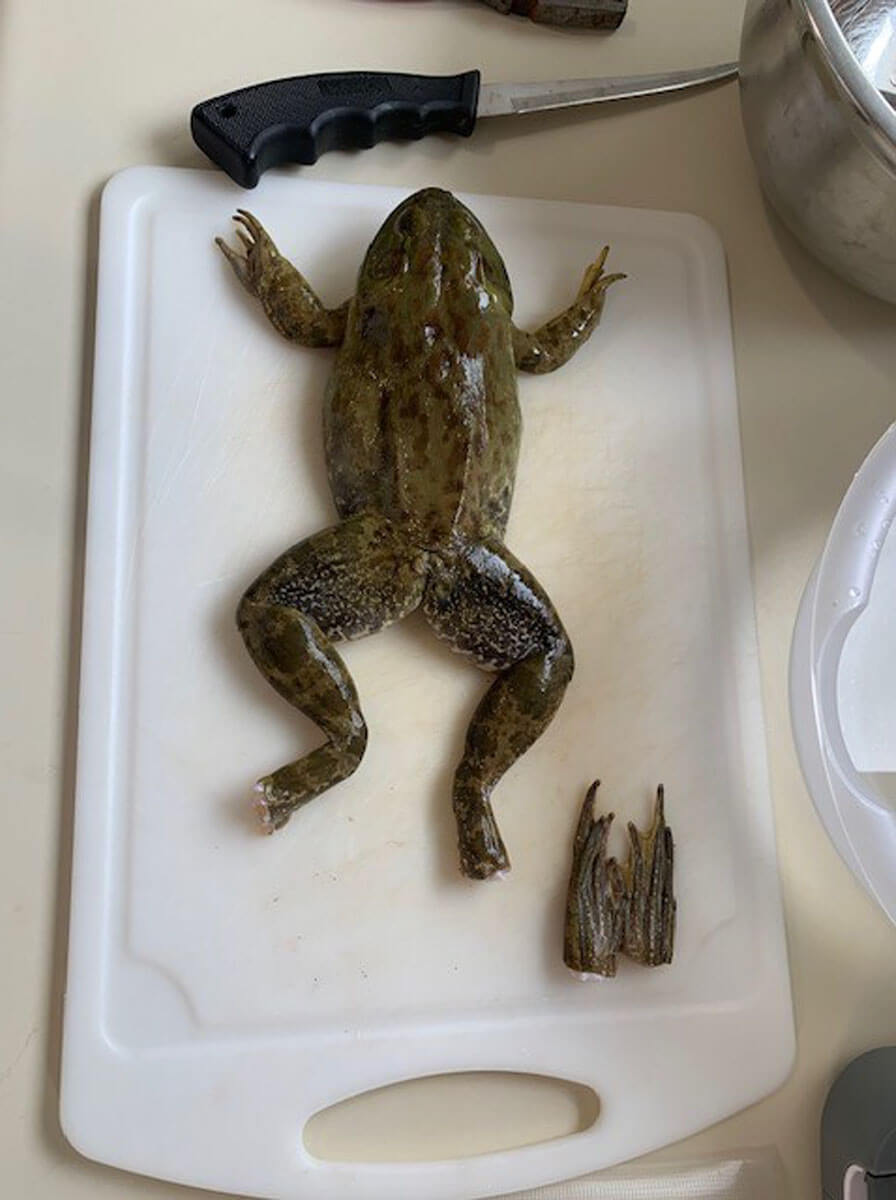
Step 2
Next, make a cut behind the head of the frog. You will notice that the skin of a frog is not like most other animals. It is more like a sock, meaning it is just covering the meat, not attached as you would find on a mammal. I would say that it more like catfish skin than anything else.
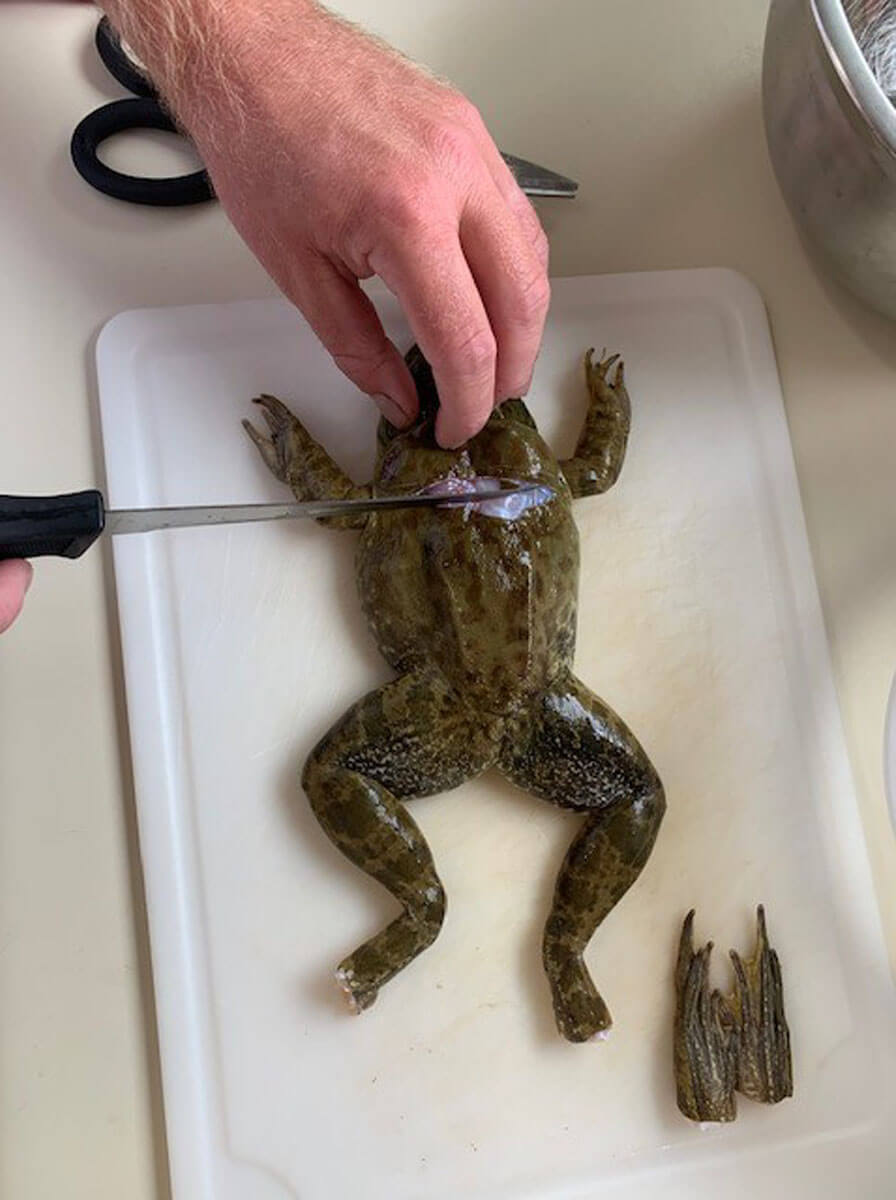
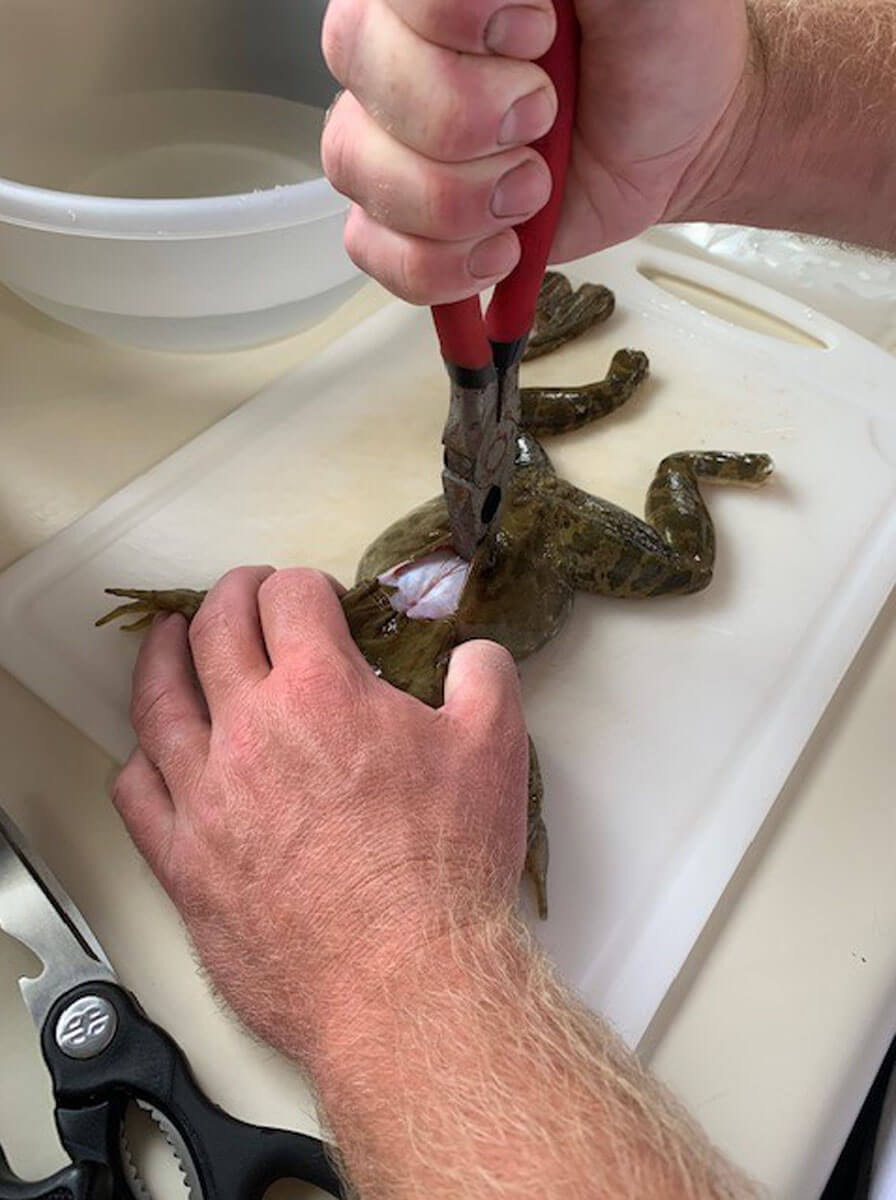
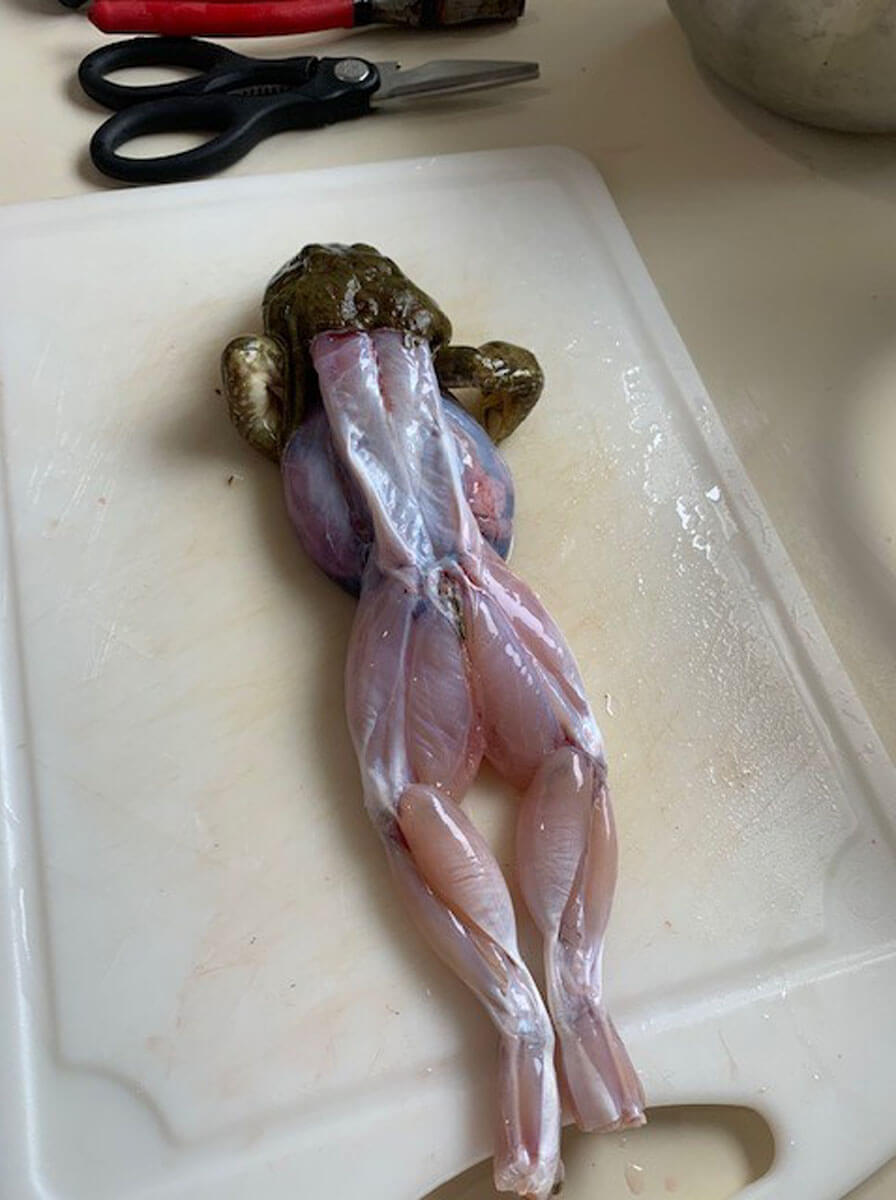
Step 3
The third step in this process is skinning the frog. You will want a pair of skinning pliers, or if you don’t have those handy you can use a pair of normal pliers, or if you are not squeamish just use your hands. You will want to grab the edge of the cuts that you have just made and in one smooth motion pull the skin towards the feet. This will leave you with a frog that is skinless from the head down.
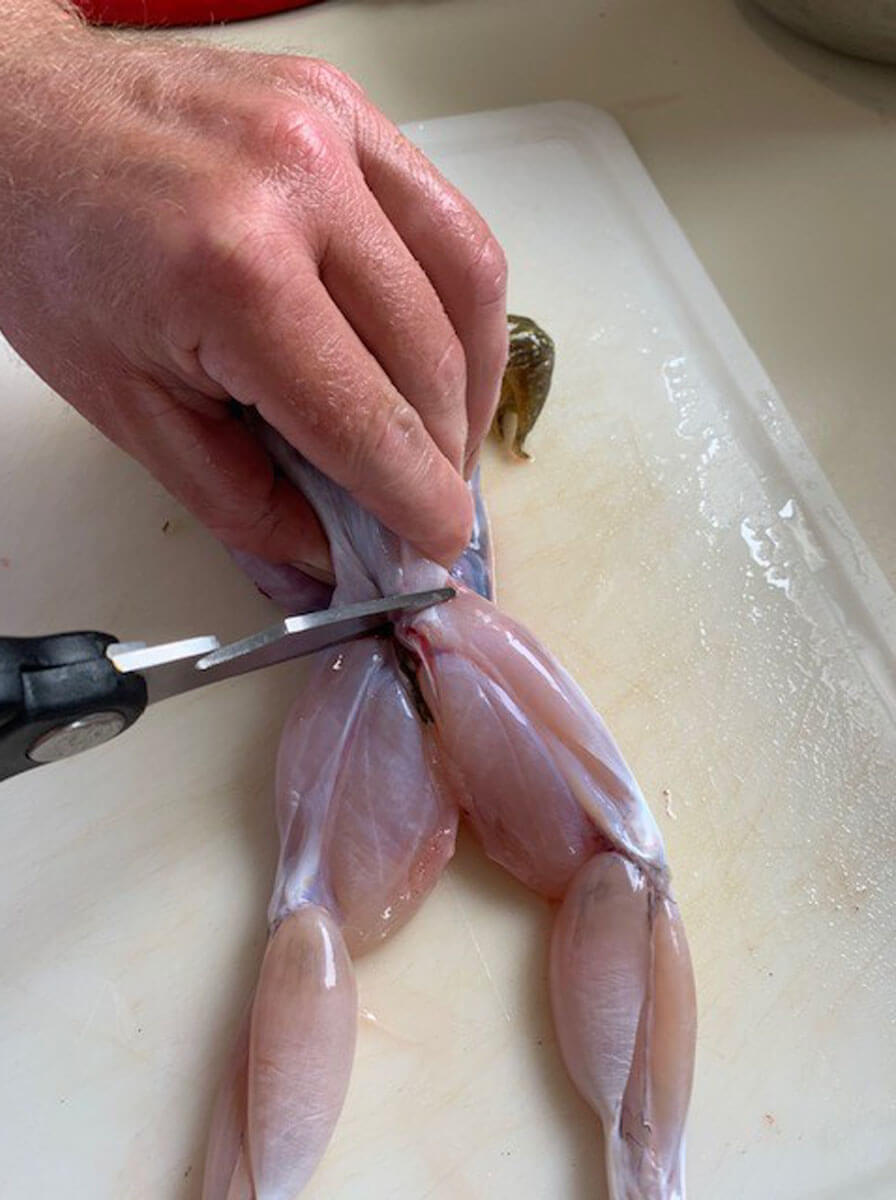
Step 4
Use a heavy-duty pair of scissors to cut the two bones just above the frog’s hind legs. They come down to form a “V” just above the legs. You will have to give this some effort, as the bones are rather thick and can be hard to cut. Once you have cut the bones, hold the frog upside down by its legs and continue to cut until the body of the frog is separated from the legs. you will then have the two back legs.
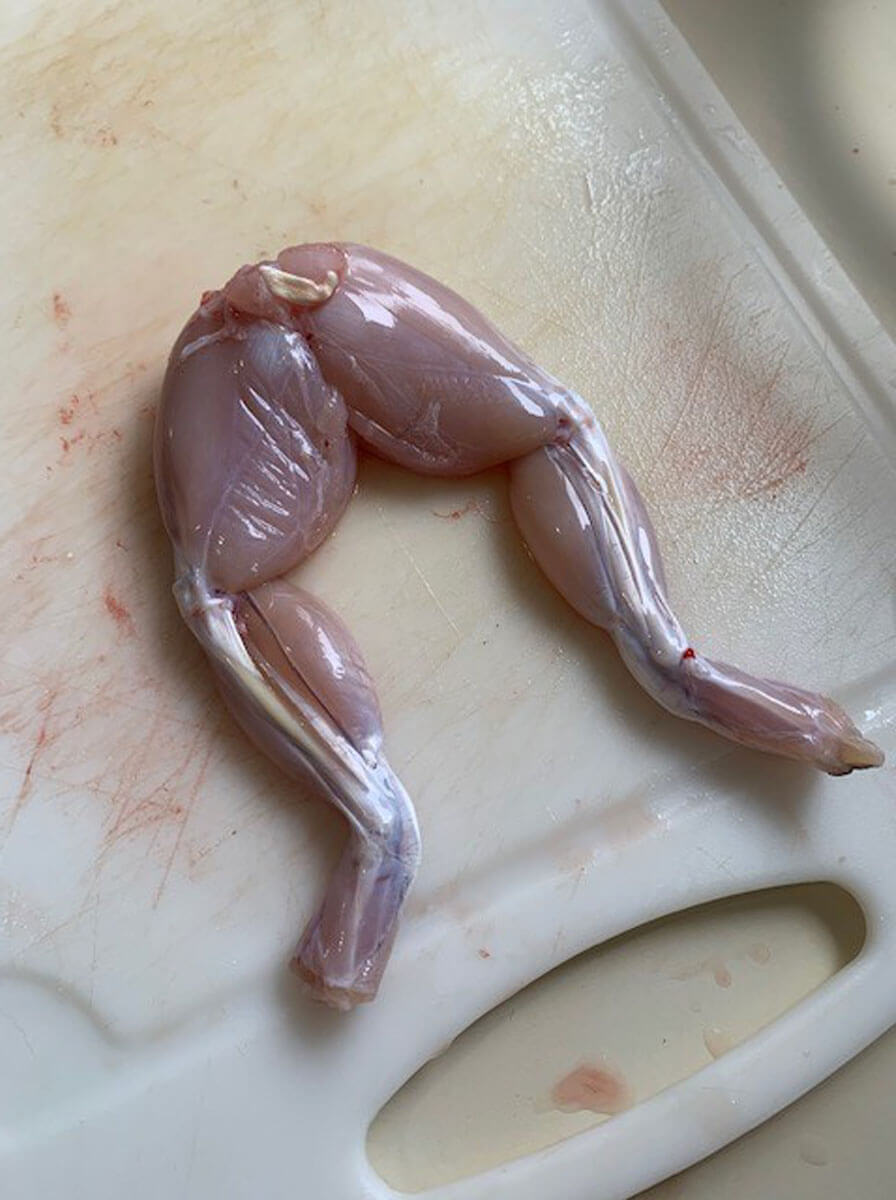
Step 5
Cut the legs in half, using the scissors. Grab one leg and hold it, allowing the other let to hang. Then take the scissors and cut one leg free from the other. This will leave you with two separated frog legs.
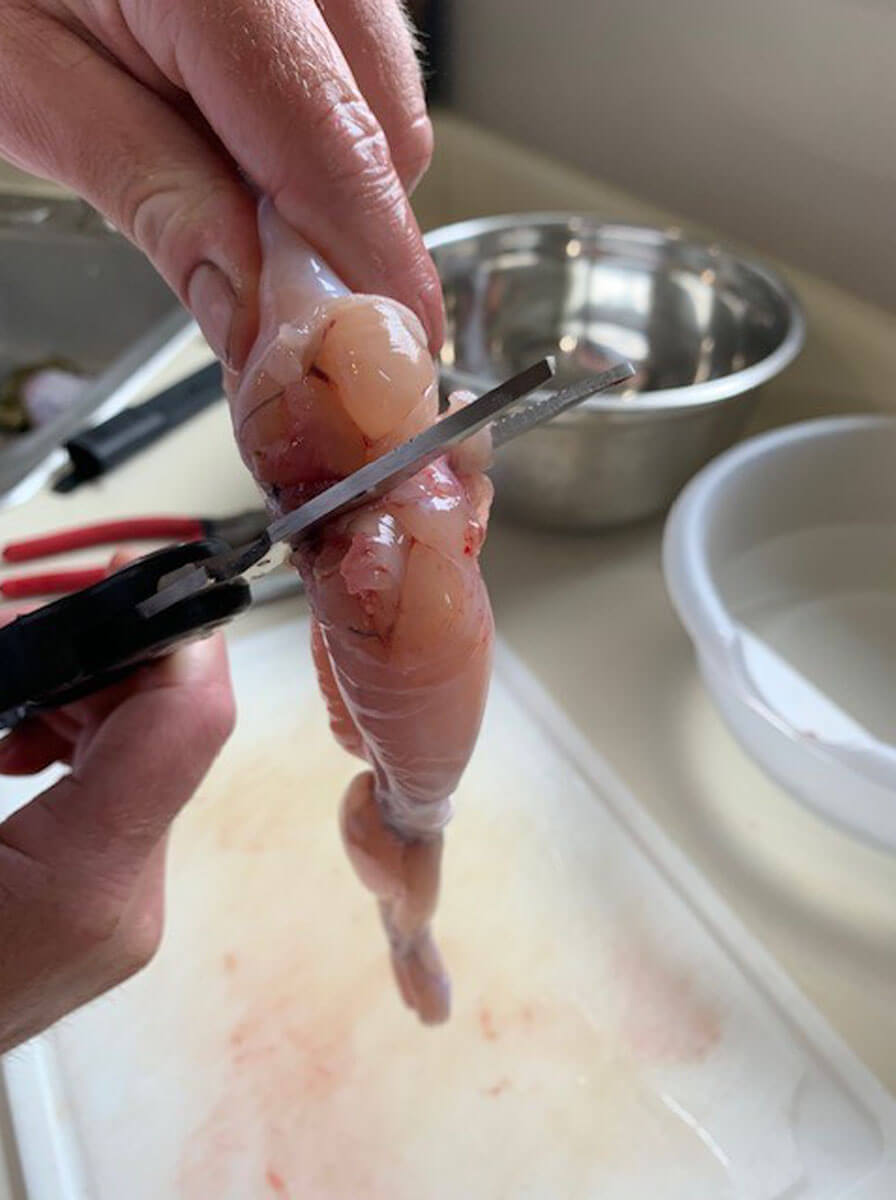
Optional.
If I have big frogs, usually in the 2-3-pound range I will cut the front legs off as well. They need to be cooked longer than the back legs. They tend to be a little tougher, but I use them for tacos after I pick the meat. They are also great for soups and stock. This is an optional step and honesty isn’t worth it unless you have some giants, but I like to use every part of the animal that is safe to eat.
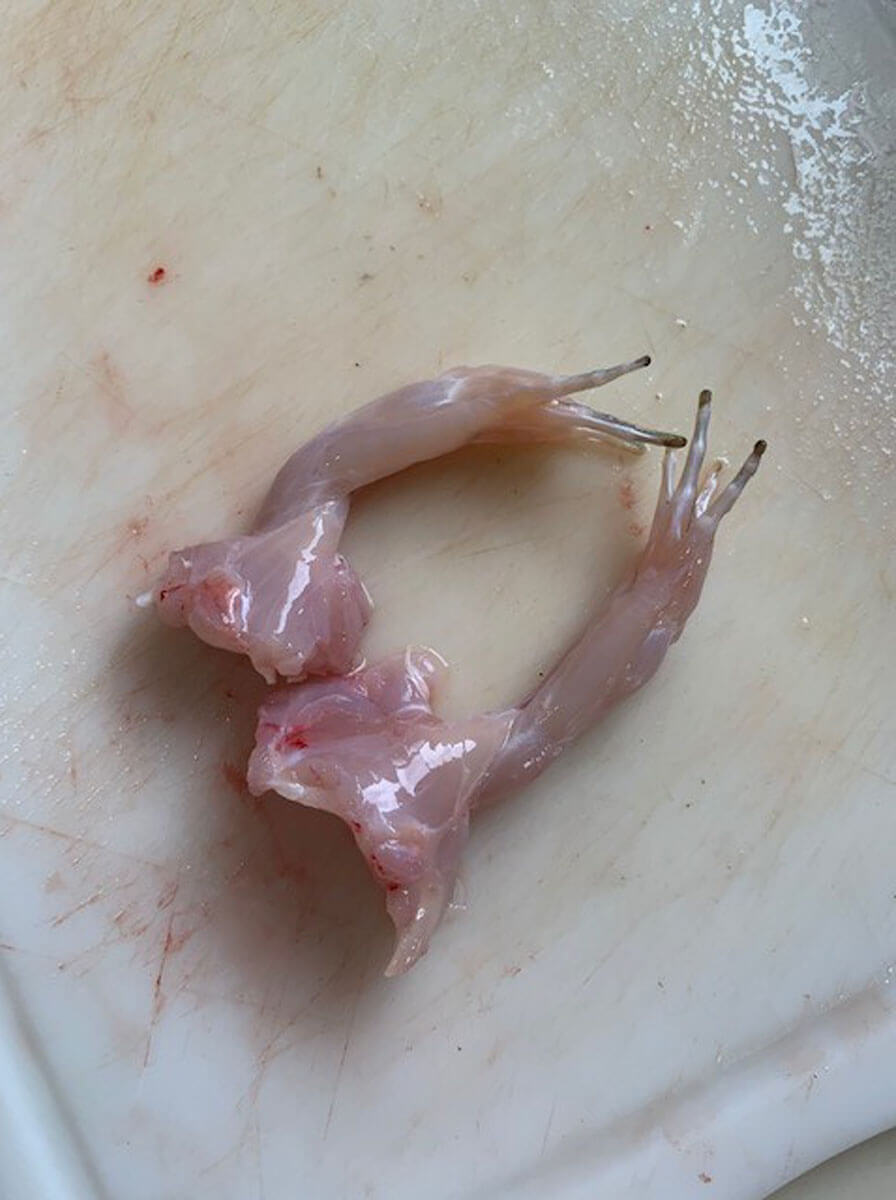
Step 6
I prefer to soak my legs in salt water for about an hour and let them rest in the fridge. I feel like this lets them keep longer in the freezer. If you do choose to use this step, be prepared, the muscles will react with the salt water and begin to twitch and move. I think it is a cool science lesson to share, but I have seen a few people be weirded out by this reaction.
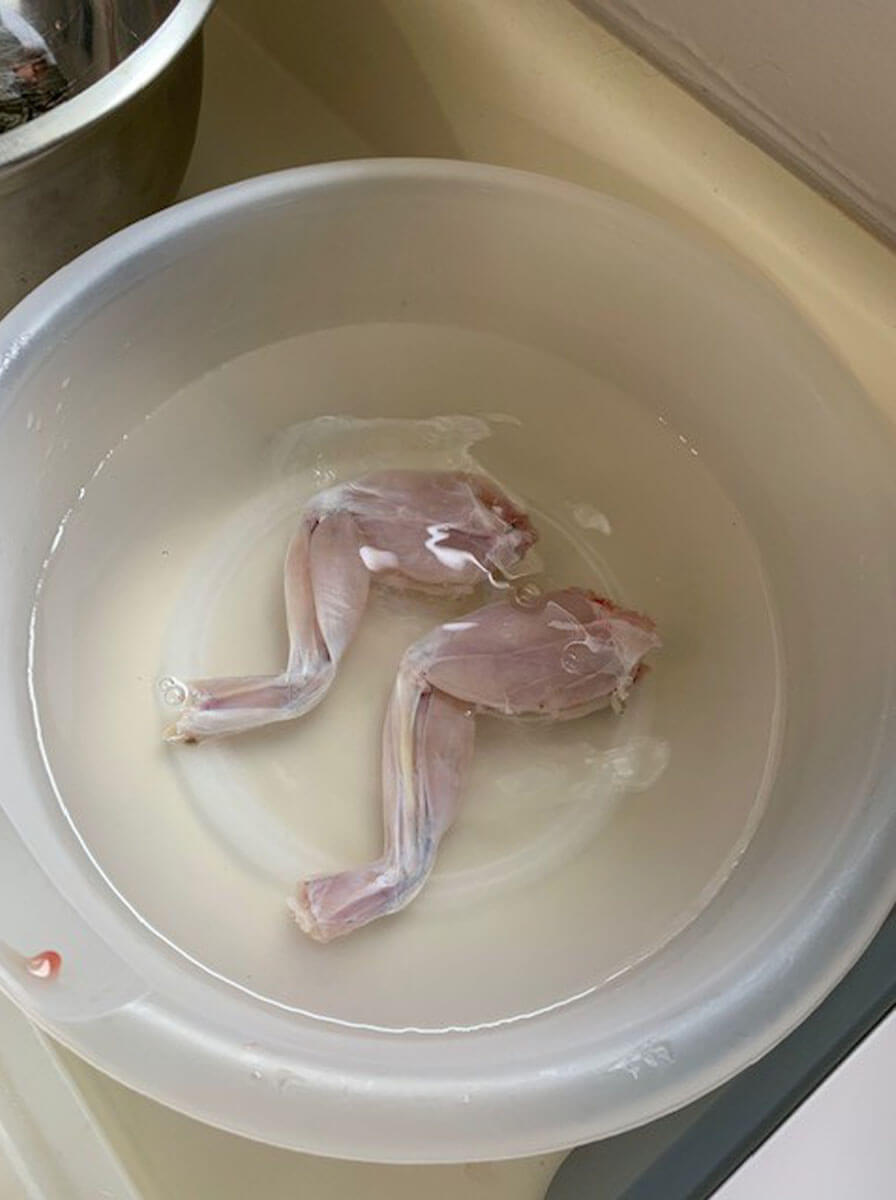
Step 7
The last step is preparing them for the freezer. Use a vacuum-sealable bag and place the frog legs inside. Make sure not to overcrowd the bag. Place the frog legs in vertically so that the air can escape the bag. The less air you have in the bag, the longer you can keep them in the freezer.
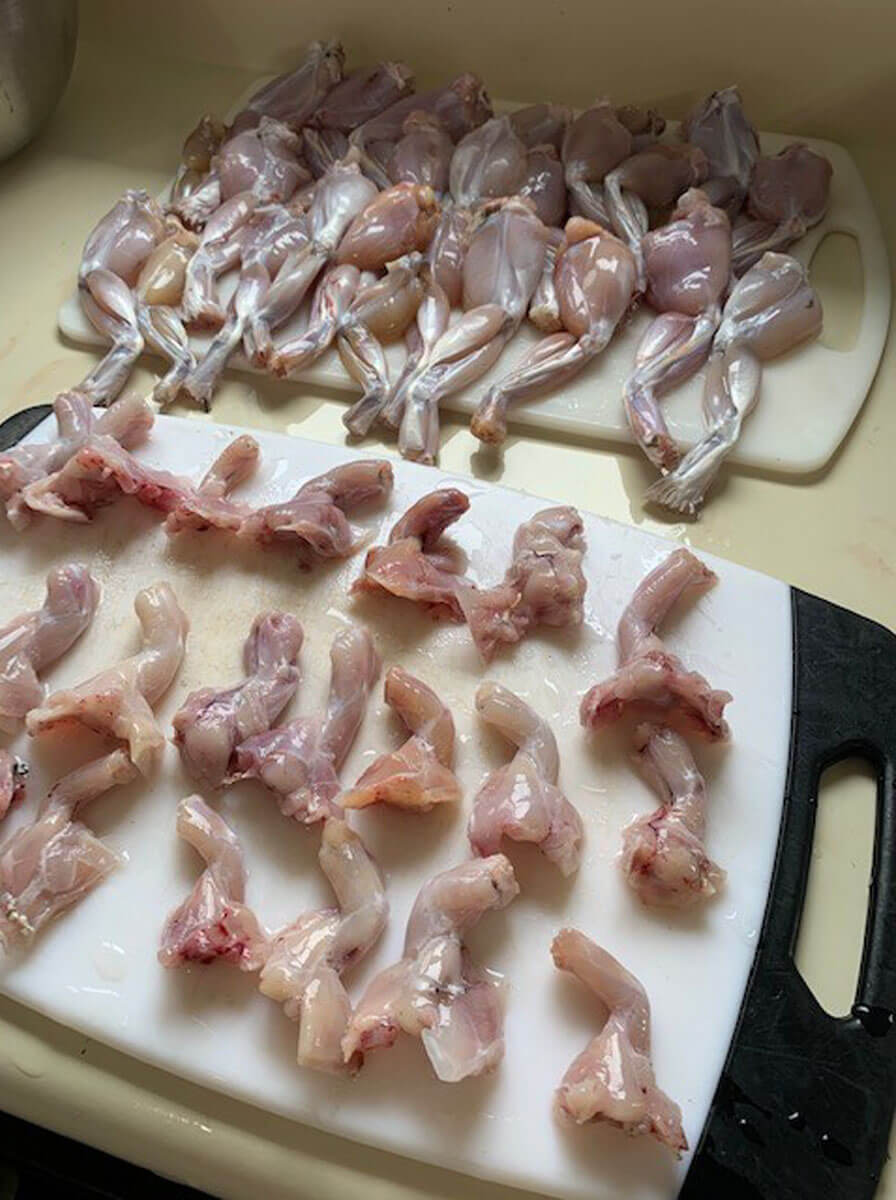
This can be a messy job, but it is well worth it. My house does not have the opportunity to eat much white meat. We try and eat what we can hunt, so besides fish and a few game birds, we have a limited menu. I welcome the opportunity to put some frogs in the freezer every year.
